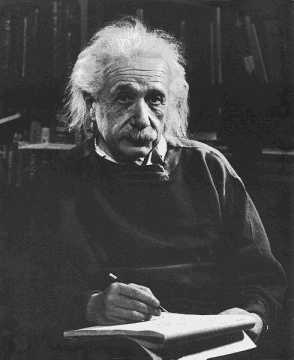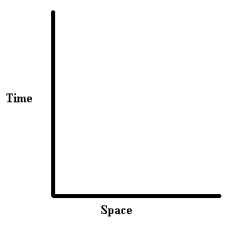Einstein and Relativity

Born:
14 March 1879 in Ulm, Germany
Died: 18 April 1955 in Princeton,
New Jersey, USA
Einstein is one of scienceís most reputable and distinguished theorists in the 19th and 20th centuries. He is best known for his theory of relativity which was ground breaking in the field of physics.
Einstein found slight problems in the physics presented in his day, i.e. Newtonian physics. To correct these slight problems, Einstein postulated that space and time are, in fact, not absolute relative to each person. That is, each person measures space and time flow differently. To provide evidence to this theory, Einstein produced two basic principles.
- The speed of light is always the same no matter who measure it. This was based on the Michelson-Morely experiment where c (the velocity of light) = 3 x 108m/s.
- The principle of relativity: If you are moving at a constant velocity, the laws of physics are always the same no matter how fast you go. This is where Einsteinís theory shines as Newtonian physics breaks down as you near the speed of light.
Along with these two basic principles, Einstein also proposes that space-time is not a single concept, but separate. Along with being separate concepts, space and time also have directions that can be represented on a graph.
